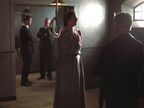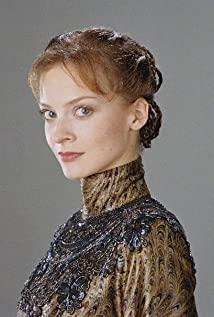The first is the development of the plot, because the daughter wants to avenge her mother and find out the truth as the driving force, instead of the love in the novel that her love with her fiancé was blocked by her fiancé's guardian using her mother to kill her father. Make your way to Poirot. This adaptation omits unnecessary characters and is more in line with the mentality of us viewers - the daughters in the film come to Poirot as soon as they know about the death of their parents Years, she didn't solve this problem until she was about to get married, which made people think that if the husband's parents didn't talk about it, when would she wait until she came forward for her parents.
In the novel, Caroline died of illness in prison, and in the movie, she was directly hanged on the gallows. In fact, no matter what, she died with stigma. The arrangement in the movie pushed her fate to a dramatic climax.
In the novel, Elsa has long been married to Gaomen. In the movie, it seems that in order to increase the punishment for the mistress, she is always alone, which further confirms the emotional confession of "I feel them lived but I died then".
At the end of the novel, after hearing Poirot's identification of the real murderer, everyone only had the word "shocked" to describe it, but nothing else. In the movie, the friend of the deceased first rebuked her, and then her daughter drew a gun to seek revenge. Of course, Poirot successfully dissuaded her from embarking on the road of murder. This is also more humane than the daughter in the original book happily holding her fiancé and the murderer by the wrong shoulder and leaving the house. In the original book, I don't see how much true feelings my daughter has for her parents. It seems that her biological parents raised her for seven or eight years in vain.
View more about Five Little Pigs reviews











